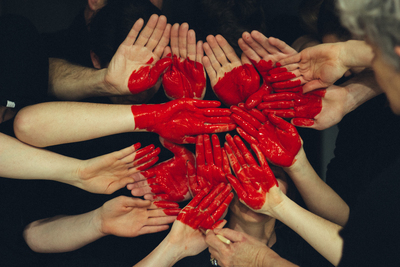: Ms.
Dambisa Moyo’s recent Huffington Post article exposes the confusions that underlie her slashing attacks on aid. Most importantly, she seems to believe that sub-Saharan Africa was economically prosperous and then was pushed into poverty by aid. She makes the following statement: “No surprise, then, that Africa is on the whole worse off today than it was 40 years ago. For example in the 1970’s less than 10% of Africa’s population lived in dire poverty — today over 70% of sub-Saharan Africa lives on less than US$2 a day.” If we move beyond the GNP and income measures, the enormity of Africa’s long-term poverty challenges become even more apparent. As we have documented elsewhere, Africa’s literacy, agricultural productivity and urbanisation rates were very low in 1970. Rural poverty was pervasive. Africa’s road coverage, electrification, rail network, and other infrastructure were sparse at best and typically non-existent in rural areas. Aid did not kill Africa. Despite the persistence of poverty, many conditions in Africa have in fact improved in recent decades. Child mortality has declined from 229 per 1,000 births in 1970 to 146 per 1,000 births in 2007. Adult literacy has increased from around 27% in 1970 to around 62% in 2007. Primary school net enrolments have increased from around 53% in 1991 to around 70% in 2007. Aid has played a helpful role in this. Yet aid was very limited, averaging around $35 per African per year since 1960. Aid has never been properly resourced or targeted for a focused period to end the poverty trap and thereby to break the dependency on aid. Africa’s differences with other regions lie not in aid, but in circumstances and history. Unlike South Asia, for example, Africa has not yet had a Green Revolution of higher food yields, the formative event of India’s economic takeoff from the late 1960s. India is a civilisation of great river systems and large-scale irrigation, thanks to the Himalayan snowmelt and glacier melt and the annual monsoon rains. Africa is a continent of rain-fed (non-irrigation) agriculture. The original Green Revolution, in which India’s food output per land area rose markedly, came in the irrigated systems of Asia, not the rain-fed systems of Africa. Moyo now campaigns against the kinds of aid that can keep millions of African children from dying or being maimed for a lifetime through the consequences of serious episodes of disease. She advocates cutting the aid that has allowed more than 2 million Africans access to life-saving AIDS treatment, since governments are involved. Almost unimaginably, she opposes the distribution of anti-malaria bed nets for Africa’s hundreds of millions of young people on the alleged grounds that it has put bed net producers in Africa out of business. In her own words: “Finally, with respect to Mr. Sachs’ remark that I would see nothing wrong with denying US$10 in aid to an African child for an anti-malarial bed net — even labelling me as cruel I say, if working towards a sustainable solution where Africans can make their own anti-malaria bed-nets (thereby creating jobs for Africans and a real chance for continents economic prospects) rather than encouraging all and sundry to dump malaria nets across the continent (which incidentally, put Africans out of business), then I am guilty as charged. Don’t forget that the over 60% of Africans that are under the age of 24 need jobs not sympathy.” She takes no note of the fact that global aid for malaria control is also training tens of thousands and soon hundred of thousands of rural Africans as community health workers and seems to be unaware that unchecked malaria has long devastated Africa’s economy while malaria control is finally emptying the hospitals, putting mothers and fathers back to work and children back to school, and contributing to the boost in Africa’s productivity and economic growth of recent years. She says that if her position against aid for LLINs is deemed to be cruel, then yes, she is “guilty as charged.”
Moyo is not offering a reasoned or evidence-based position on aid. Everybody that deals with aid wants to promote financial transparency and market-led growth, not aid dependency. We and others have recommended many successful mechanisms to limit corruption and ensure that aid reaches the recipients, as is happening in the disease-control programs. The purpose of aid should indeed be to break the poverty trap through targeted investments in an African Green Revolution disease control children’s education core infrastructure of roads, power, safe drinking water and sanitation, and broadband and business development, including microfinance and rural diversification among impoverished smallholder farmers.
Moyos Confused Attack On Aid For Africa 2009: Ms Dambisa
Moyos Confused Attack on Aid for Africa

